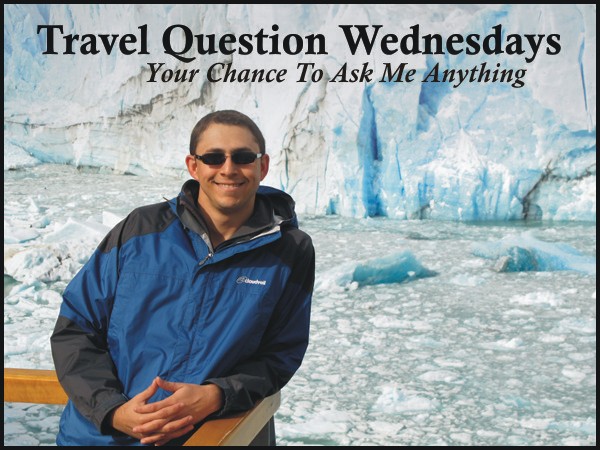This post is part of the Ask Alex, Travel Question Wednesdays weekly series. To see previous questions click here. To submit your own; tweet it to @AlexBerger, ask it in a comment on this post or send it in by e-mail.
This week’s travel question is from Linda who asks,
Q. “Alex, I’m going to study abroad this summer and I want to start my own little travel blog. Nothing fancy just something free and easy. What do you recommend?””
A. – I highly recommend everyone who finds themselves gearing up for an important trip take the time to start up a small blog. Even if you have little/no intention of continuing the project after the trip ends it is a great way to record the experience and to share it with friends and family. It’s also exciting and surprisingly informative to read back through old blog posts. A blog well written can bring back memories that would otherwise be lost. It always amazes me how some of these otherwise forgotten memories can be grand stories which in the moment seem completely unforgettable. When I started VirtualWayfarer these considerations were about the extent of what I had planned, so, you never know when the blog intended for one small trip may turn into something very different given time and opportunity.
Hands down the best, most universal, and widely used platform to blog on is WordPress. WordPress comes in two forms; a .com and a .org version. WordPress.com is free and provides free hosting with a somewhat reduced set of control options. Your website URL will be something like virtualwayfarer.wordpress.com and your chances of building effective search engine optimization and a large readership are usually more limited – though not impossible. However, it is perfect if you want an incredibly easy to learn, free to use platform that is good for some limited random discovery, and sharing with your friends and social network. The added benefit is that wordpress.com allows for a seamless export of all of your posts and data which can then be imported into wordpress.org if you decide to transition at a later date.
WordPress.org is also free, however unlike WordPress.com it does not provide hosting and instead is a free copy of the wordpress software. This means that you’ll have to subscribe and pay for premium webhosting – vendors like Host Gator and Blue Host are popular – and then install the software. You’ll also need your own domain name (eg: VirtualWayfarer.com). This option is good if you plan to do something more with your blog or want to use it long term. However, if all you want is a free solution that will sit there without need for maintenance between trips or a re-occurring annual cost this probably isn’t ideal for you. How popular is it? Well, you’ll find that about 95% of all major travel blogs are using WordPress.
If you’re not a fan of WordPress then consider Tumblr or Blogger. Tumblr tends to be far more popular for sharing images, while Blogger has been making large strides to improve the appearance of their blog interface and the themes they’ve made available. Both of these are similar in format, form and function to the .com version of WordPress.
There are also a mixture of websites designed specifically to serve in a similar hosting capacity to WordPress.com. However, unlike wordpress.com which is general these are tailored to novice travel bloggers. These sites offer a certain level of increased exposure to the local community, but also provide less control and autonomy than the general blogging services mentioned above.
More specific questions about how to set up your own blog? Let me know! I’m happy to help.
-Alex
Have a question of your own? ASK IT! Want to see previous questions? click here.
